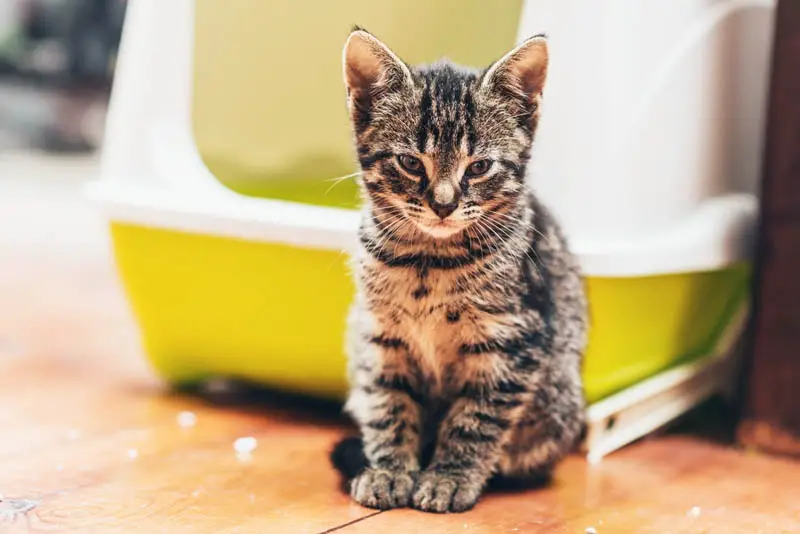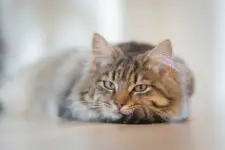Excessive Urination in Cats (Polyuria): Causes & Treatment
Frequent urination can be a symptom of an underlying health problem.
Some of these problems could be life-threatening and early detection might go a long way in ensuring your cat gets the proper attention.
Therefore, it is important to monitor your cat’s toilet behavior.

Causes of Excessive Urination in Cats
Frequent urination can be as a result of certain conditions.
It could be medical or behavioral.
Some of the causes of frequent urination are:
Kidney disease/failure
Kidneys perform important work in the body, therefore, it makes sense that renal failure is the most life-threatening urinary issue for cats, its failure results in toxin build-up in the kidney.
Without proper attention, these toxins will make their way to the bloodstream.
Renal failure could be as a result of long-term degeneration or sudden trauma. Kidney failure manifests itself in different ways.
Frequent urination, bad breath, cat vomiting, mild depression, and seizures are some of the symptoms.
Diabetes
Diabetes results in increased glucose levels in the blood leading to frequent urination.
Diabetes can be hereditary, age-related or weight related.
Aside from frequent urination, weight loss, vomiting, increased water intake and decreased activity are some of the other symptoms of diabetes.
Urinary tract infection (UTI)
UTIs is a common health problem in cats that could also be a symptom of a greater underlying problem like urolithiasis.
Urinary tract infection is very painful and causes a certain level of discomfort. It also results in the need to urinate frequently so your cat will make its way to the litter box a lot.
You might also notice blood in the urine or the cat urinating outside the litter box.
Bladder infection
It is easy to confuse bladder infection with urinary tract infection (UTI). They have the same causes and characteristics.
The major difference is that bladder infection affects the bladder and is caused by dietary imbalance, stress or bacterial infection.
Bladder infection makes cats clean their genitals frequently and vomiting happens in severe cases.
Incontinence (Weak bladder)
Weak bladder happens as a result of age (common in older female cats who have been spayed) or trauma that results in the weakening of the bladder.
A wet bottom and urination when the cat stands are some of the symptoms of incontinence.
Hormonal imbalance
Hyperthyroidism is caused by a benign tumor growth in the neck. It is characterized by frequent urination and it affects middle-aged cats.
Urine Marking
Frequent urination could be a behavioral issue.
If your cats urinate frequently at a specific spot, he/she could be trying to mark its territory.
Changing homes or getting a new pet could cause urine marking.
Treatment of Excessive Urination in Cats
Treatment for frequent urination solely depends on the underlying cause.
When you notice that your cat pees more frequently than usual, make sure you rule out behavioral causes before making an appointment with your vet.
An animal behavior consultant will help you deal with behavioral issues. When making changes like rearranging your home, do it gradually in order to give the cat ample time to adjust.
It is important to record specific details about the cat’s symptoms will help the vet determine the cause.
Note the frequency with which your cat urinates, the quantity of the urine and the water it consumes.
To determine the underlying cause, the vet will carry out a number of tests like urinalysis and a complete blood count.
For UTIs or bladder infections, the cat will be given antibiotics for several weeks while insulin will be administered regularly for diabetes.
A dietary change will also be recommended in the case of diabetes to help manage the problem and prevent further complications.
It is also important to increase the cat’s water intake to avoid dehydration.
You can do this by adding water bowls or buying a water fountain to entice your cat to drink water.
Replacing dry food with canned also helps to increase water intake.




